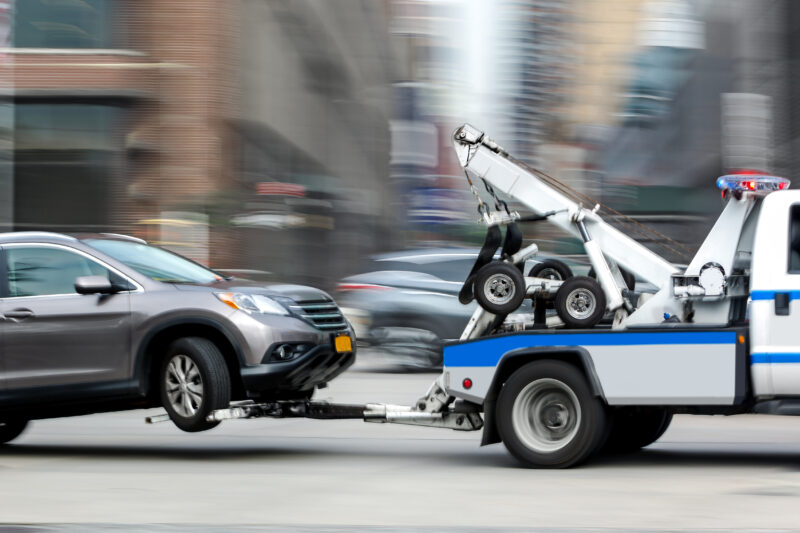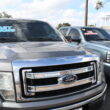From the April issue of UCD
By John Dismukes
Hardly a day goes by that the topic of vehicle repossession is not discussed in dealer networks, whether it be the legalities of repoing in another state, finding a reputable repossession company to work with, or a story about a repo gone wrong. The complexities of the repossession process can be often confusing for the average used car dealer to navigate.
This month, I sat down with Laurie Hilbert, Member Services and Client Relations Manager with the American Recovery Association, to discuss best practices for independent dealers.
John Dismukes: It’s been my experience that dealers can often unintentionally get themselves in hot water during the repossession process. What are the most common legal pitfalls that dealers face in recovering vehicles?
Laurie Hilbert: Two of the most common mistakes are not checking to see if you still have the lien on the vehicle and not checking to see if the vehicle has been sold after being impounded. Dealers should make sure they use a reputable agency that is trained and certified with up-to-date insurance. Everything centers on being in compliance. That way, if you have to get into a legal battle, you don’t have to be concerned about a wrongful repo.
JD: A typical scenario is that a dealer sells a car, and next thing you know, the customer is taking it across state lines and state laws can be vastly different. How do state laws differ regarding repossession and what should the dealers be aware of when considering repossessing a vehicle in a state other than where they’re based?
LH: Every state law is different. For example, there’s 17 states that require you to be registered with a state license. There’s some states where you have to register as a collection agency. You should have a reputable repossession company that knows the laws. Great resources for being in compliance are the state and local independent automobile associations as well as the American Recovery Association. Our website repo.org makes it easy to find a repo agent in all 50 states.
JD: What are the biggest challenges that used car dealers are facing when they repossess a vehicle?
LH: First of all, it’s inherently dangerous. Wherever you are, that’s a challenge they face every day, correct? In the past, dealers and repo agents had the mindset to do whatever it takes to get the car back. The number one chore is not to get the car back. Our No. 1 task as a repo agent is to protect a dealer and their reputation and to not violate the law. A dealer can limit their chances of things going wrong when they use a well-trained, compliant and properly insured agent. In repossession, you can never take out all of the risk. But a dealer protects themselves when they use a repossession company that is certified, they are trained, they know the laws, they know not to breach the peace, they don’t go into places they are not supposed to, they don’t go into someone else’s garage, etc.
JD: How can dealers handle disputes with customers who claim that their vehicle has been wrongly repossessed?
LH: By covering their bases during the repo process, a dealer can be prepared to handle wrongful repossession disputes. There’s never a 0 percent chance of not being sued, but if you’ve covered all of your bases, you limit your chances of being sued. Hiring the right certified agency that is up to date on all of their compliance, that knows the state laws, that shows a track record of due diligence on the dealer’s part. For example, if a dealer in Kansas has done the due diligence to assign an account to somebody in Alabama, they’ve done the due diligence on the repo agent, they have the proper paperwork being the accounting of the money in the funds, then they’ve done everything they can do to prevent a wrongful repossession. We recommend that all parties use a hold-harmless agreement, which is a basic contract agreeing to hold harmless so that the repossession company is held harmless from any claims against the dealer, and the dealer is now held harmless from any claims that the repo agent has.
JD: What are some ways that you’ve seen borrowers try to avoid repossession? And how can dealers and repo agents overcome these challenges when recovering their collateral?
LH: Over the years, we have seen it all in the recovery business. I have seen customers change license plates, switch the car with a friend. We’ve even seen customers go so far as to repaint the car that is up for repossession.
JD: Wow, it seems like less work just to pay for the car.
LH: Yes. You would think as inventive as they are, they would be able to do something to pay their car note. People are going to be inventive, but technology has completely rearranged the repossession industry. I grew up in a family-owned repossession company, and I started with a sling repo truck. All we had was a road map and to find the address and hope the car was sitting there. If it wasn’t, that was it. You just ran by a couple more times and hoped the car showed up. GPS and the Digital Recognition Network (DRN) has made it much easier to find vehicles and much more difficult for the customer to hide.
JD: Let’s talk about the Digital Recognition Network and how do DRN hits work?
LH: Digital Recognition Network (DRN) is a massive network of cameras throughout our country. A repo agent can look up any license plate in the United States. If there is a match, the program will show the last time one of the company’s cameras captured the plate, including a photo and information about when and where the photo was taken. If the customer is hiding the car behind grandma’s or parking it down the street in a different apartment complex, a skilled repo agent will probably know where it’s sitting at the minute they got the assignment. Oftentimes, the repo agent is going to know where the car is before the dealer does.
JD: Thank you Laurie for your insight. How can our readers find out more about the American Recovery Association and locate a reputable repo agent?
LH: The best way to find a reputable repo agent and to learn more about what we do at the American Recovery Association is to visit our website at repo.org.
Let’s keep the conversation going. Let me know your thoughts, email me at john@niada.com










